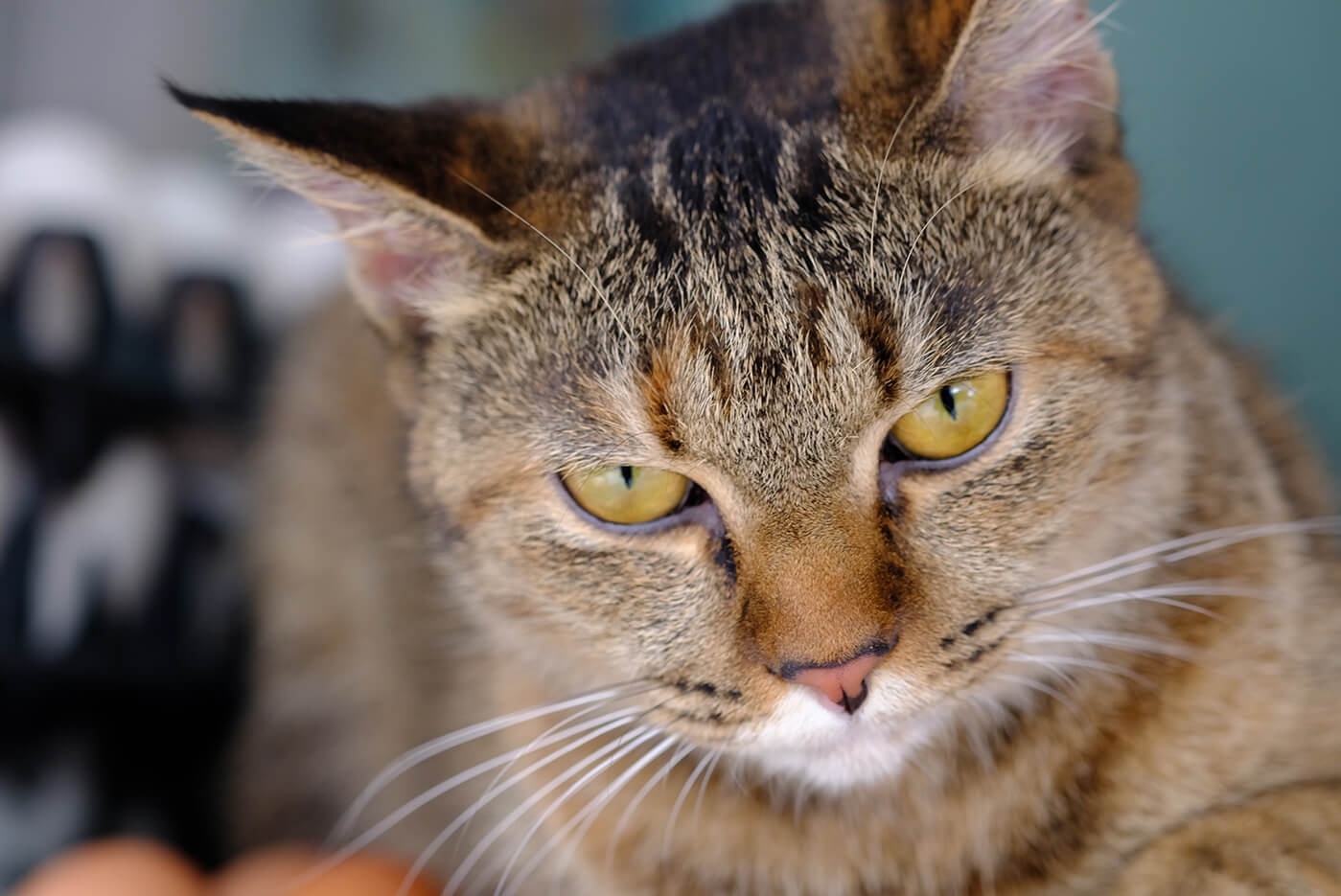
- by Dr.Thilo Senst
Essential Diet Tips for Cat Eye Health: Foods & Nutrients
- by Dr.Thilo Senst
The Role of Diet in Maintaining Cat Eye Health
A cat’s vision is crucial to its daily activities, from hunting to simply exploring its surroundings. Ensuring excellent cat eye health means supporting both the cat’s immediate well-being and long-term quality of life. A well-balanced diet is one of the most important ways to support eye health in cats, as specific nutrients and vitamins can help prevent eye diseases and maintain vision.
Cats are susceptible to various eye conditions, including cataracts, conjunctivitis, and retinal degeneration. Factors like genetics, age, environment, and diet contribute to eye health, with diet often playing a significant role. Research in the UK reveals that up to 40% of older cats experience some degree of vision impairment, highlighting the importance of proactive dietary choices that support eye health.
The old saying, “You are what you eat,” rings true even for cats. Just as a poor diet can lead to health complications, a diet lacking in essential nutrients can compromise eye health. Ensuring your cat’s diet includes specific nutrients can help maintain healthy eyes and prevent vision-related issues. According to a UK study by the Royal Veterinary College, diets rich in antioxidants and omega-3 fatty acids are linked to a reduced risk of age-related eye problems in cats.
Vitamin A
Vitamin A is essential for vision, as it supports the retina’s ability to function effectively. Found naturally in animal-based proteins, Vitamin A is a key component of the light-sensing cells in the retina.
Taurine
Taurine is an amino acid crucial for cats, as they cannot produce it independently. Essential for both vision and heart health, taurine deficiency can lead to retinal degeneration.
Omega-3 Fatty Acids (DHA and EPA)
Omega-3s, especially DHA and EPA, are beneficial for reducing inflammation and supporting retinal health. Regular intake can help protect the eye against degenerative diseases.
Vitamin E
Vitamin E is a powerful antioxidant that protects eye cells from free radical damage, which can accelerate the ageing process and lead to vision issues.
Think of your cat’s eyes as windows to their overall health, much like maintaining clean windows in your home. Just as you would regularly clean and protect windows to preserve your view, nourishing your cat’s diet with essential nutrients ensures clear and healthy vision.
Choose High-Quality Cat Foods
High-quality cat foods often contain a balanced mix of essential nutrients. Opt for brands that use whole meats and limited fillers to provide essential vitamins and minerals naturally.
Add Omega-3 Supplements
Supplements like fish oil are beneficial, especially if your cat's diet is lacking in omega-3s. Omega-3 supplements can aid in reducing inflammation and protecting retinal health.
Incorporate Antioxidant-Rich Foods
Antioxidants help to combat oxidative stress, which can lead to cell degeneration in the eyes. Blueberries, carrots, and spinach contain antioxidants but should be offered in moderation.
Limit Exposure to Artificial Preservatives and Additives
Some commercial cat foods contain preservatives that could have a negative impact on eye health over time. Choose natural, preservative-free foods when possible.
| Nutrient | Source | Role in Eye Health |
|---|---|---|
| Vitamin A | Liver, Fish Oil | Supports retinal function |
| Taurine | Meat | Prevents retinal degeneration |
| Omega-3 | Fish Oil | Reduces inflammation |
| Vitamin E | Plant Oils | Protects cells from free radical damage |
Q1: How often should I include omega-3 in my cat’s diet for eye health?
Including omega-3s daily through fish-based cat food or supplements is ideal, but consult with a vet to determine the correct dosage.
Q2: Can a lack of taurine affect my cat’s vision?
Yes, taurine deficiency is directly linked to retinal degeneration, which can result in vision loss. Ensure your cat’s diet is taurine-enriched.
Q3: Are there any natural foods that support cat eye health?
Yes, small amounts of carrots, blueberries, and other antioxidant-rich foods can be beneficial when offered in moderation.
In addition to a well-balanced diet, certain products can provide immediate support for your cat’s eye health:
Ensuring cat eye health through diet and supplementary care is an effective way to promote a long, happy life for your feline friend.
![]()
Enter your details & download our comprehensive 50+ page printable Dr. Senst Pet Care Planner completley FREE! - keep track of all your pet’s needs, from medical history and training to vet visits, grooming, diet, and more!










Share:
Can Food Allergies Cause Itchy Skin in Cats? Signs, Solutions & Tips
Natural Dog Flea Control in Winter: Effective Methods for Your Pet